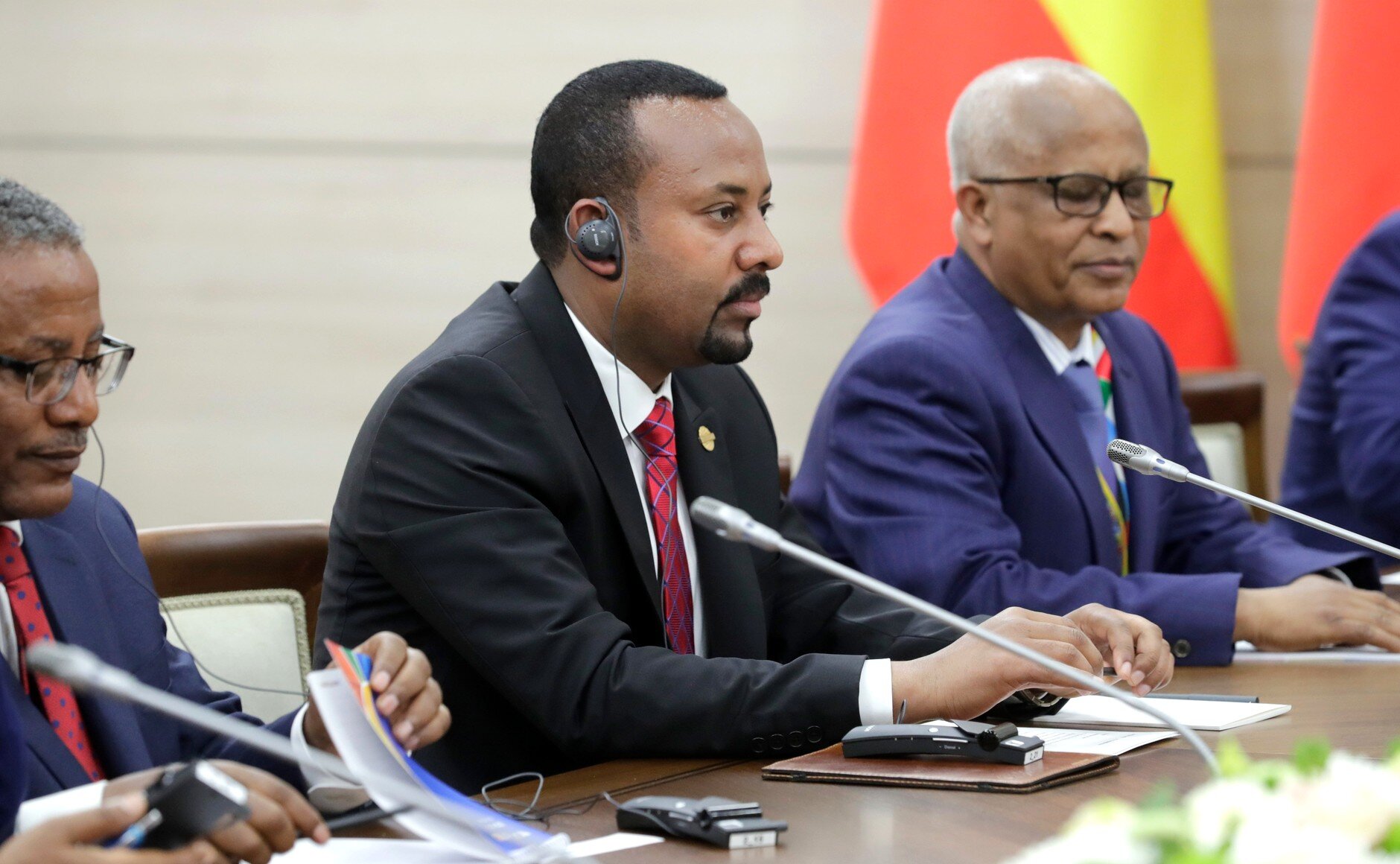Protests in Ethiopia Undermine Abiy Ahmed Ali’s Recent Nobel Prize
Ethiopian Prime Minister Abiy Ahmed Ali (pictured above) is facing violent protests, and a well-liked political activist is considering running against him in the upcoming national election. (Kremlin)
Violent protests across Ethiopia’s Oromia region and the capital, Addis Ababa, have rocked the country and left at least 78 people dead. Police have thus far arrested more than 400 individuals accused of being involved in the protests, which began after Jawar Mohammad, a prominent activist in the region, accused security forces of plotting an attack against him.
Mohammad had until recently been in self-imposed exile. Upon his return to the country, he was granted a government security detail. However, last week, Mohammad claimed there was an attempt to remove his detail, which would have left him vulnerable to attack. This enraged many of his supporters, who were already concerned for his safety following what many viewed as a thinly veiled threat by Abiy when he accused unnamed media personalities with foreign passports of attempting to stir strife within the country. This could have been a stab at Mohammad, who holds an American passport.
Mohammad rose to fame in Ethiopia after helping to plan the anti-government protests that occurred in the country between 2015 and 2018. Those protests eventually led to the ousting of the previous government in 2018, earning Mohamad the ire of those who supported the former regime.
Many in the Oromo region see the recent actions and statements of Abiy as a grave betrayal, as both Mohammad and the prime minister are from the region. Abiy’s popularity has also taken a hit across the country following the incident, with residents of Ambo, a town 62 miles from the capital, reporting that he was met by a crowd of protesters when he arrived there for meetings with local politicians.
In the days following the protests, Mohammad has announced that he is considering running against Abiy in the upcoming national election. He has accused the prime minister of taking actions that he views as “the early signs of dictatorship.” His accusation will likely be taken quite seriously by his supporters, and he could prove to be a substantial opponent to Abiy in what is proving to be an increasingly fractured political landscape in Ethiopia.
All this comes on the heels of Abiy winning the Nobel Peace Prize last month, a move that many stressed was premature. The Nobel Committee cited various reasons for their decision, recognizing his achievements on the international stage but also his efforts domestically to bring the nation back together following the fall of the previous government. Many fear that those who expressed concern over the Nobel committee's decision may have been correct, as Abiy’s recent behavior and the resulting protests seem to undermine his supposed successes domestically.

